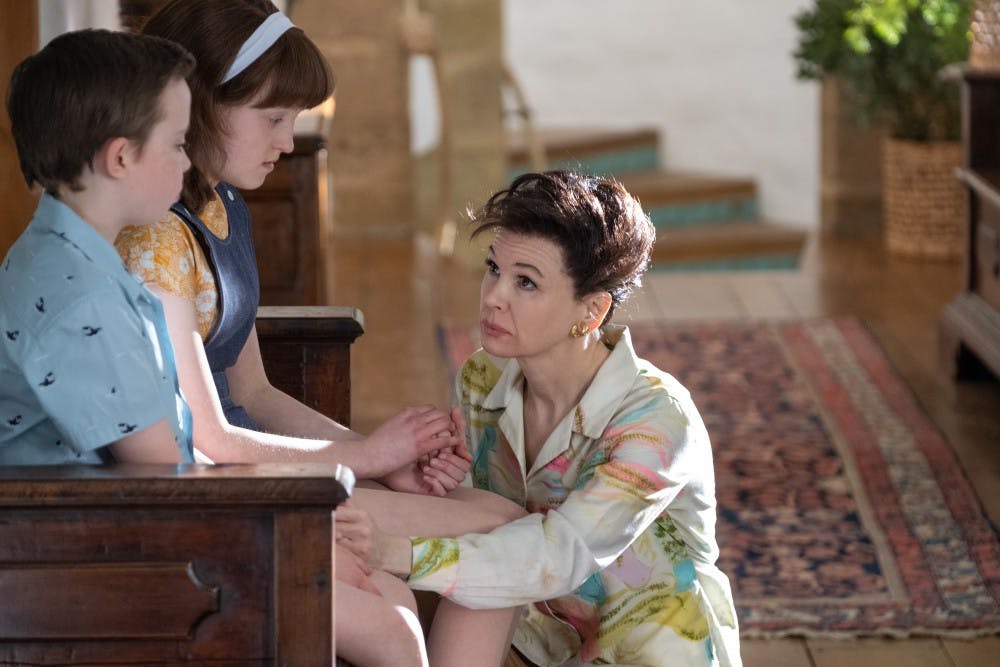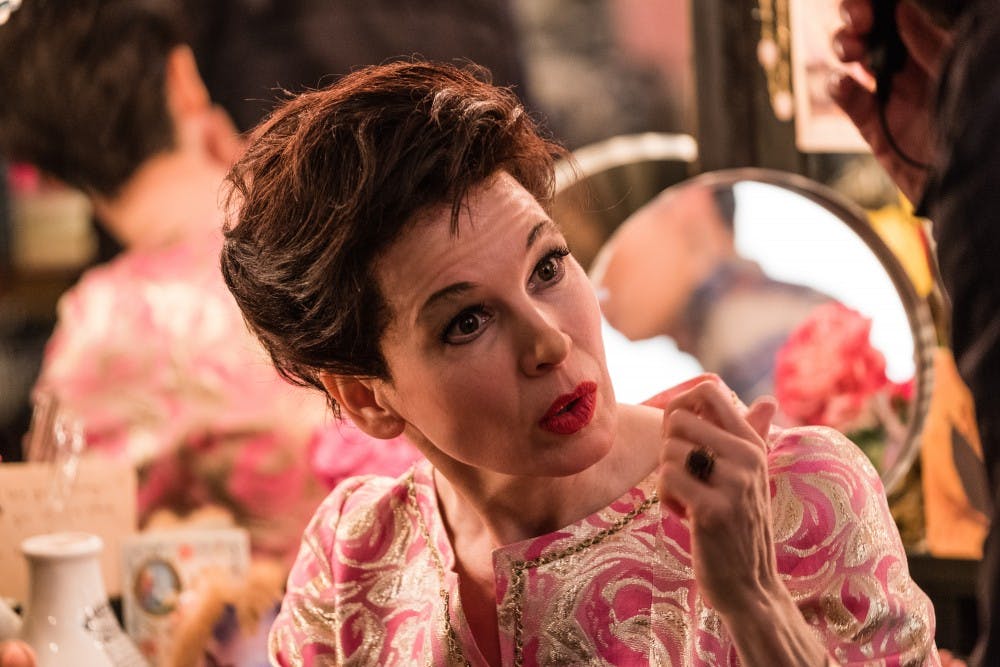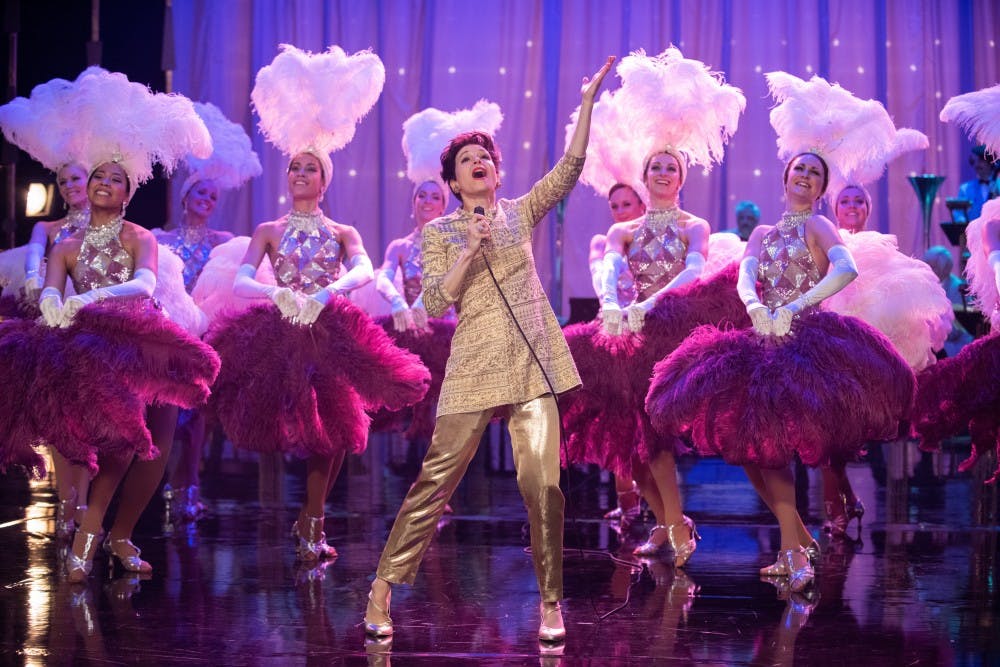Judy Garland is undoubtedly one of the most famous American actresses of all time. From her lead role in the groundbreaking film The Wizard of Oz to her enduring status as a gay icon to her tragic death at the age of 47, she is not only a part of film iconography but also an emblem of the American entertainment industry. Unfortunately, despite her compellingly tragic life story, the biopic of her life—plainly titled Judy—falls flat when compared to the legend’s stardom and rawness.
Judy begins by looking at one of the most recognizable periods of Garland’s life—her partnership with production company MGM and the making of The Wizard of Oz. The movie then shifts to Garland’s life around the year 1968, when she is forced to move to London because she can't get work in America. From there, we witness her career’s final descent and the end stages of her life. There is nothing particularly shocking about this plot, and likely its greatest flaw is that it flits back and forth between the ''present" and the past trauma that Garland went through on the set of The Wizard of Oz.

Yet, while Judy displays this tragic part of her youth, it fails to actually make the agony of it connect with its audience. The overbearing evilness of Judy’s manager skulking in the corner and barking that she can’t eat a hamburger feels over–the–top. Even Judy's rebellion against the system feels hollow and drawn–out, featuring a classic coming–of–age shot where she jumps into the prop pool at her fake birthday party for a photoshoot against the wishes of her boss. The overwhelming control of these film directors and producers should inspire fear and horror in the audience, but instead, because of their campy evilness, they inspire nothing but irritation. There is certainly sympathy for Judy, but never empathy, which is disappointing given that the actual terror Garland experienced during this time in her life is well–documented.
Renée Zellweger is the perfect choice to play Garland in this film. She, like Garland, has been facing a career decline since her hits Bridget Jones’ Diary in 2001 and Chicago in 2002. Around 2008, she took a hiatus from screen roles, but now that she's back, this performance is one of her best. Zellweger, an incredibly versatile actress, transforms into Garland while still putting elements of herself into the character—while not totally Judy, she is not totally herself, either. Obvious quirks of Zellweger’s like her sweet little wink or the peculiar purse of her lips worm their way into the character, but they do not feel out of place. Such a combination takes precision, which is why actors able to pull it off deserve considerable praise. This might not be Zellweger’s best role—Roxie in Chicago is a feat of musical and physical talent, and an impressive revival of a complex character—but she portrays Garland’s descent and sings her incredibly well–known songs without feeling too trope–y, all while wearing fake teeth.

The issue with her version of Judy lies not on Zellweger, but on how her story is constructed. Judy relies on Garland’s extensive, effortless talent—even after drinking herself into a stupor and taking handfuls of amphetamines, she still struts on stage with no practice and performs the first number of the film effortlessly. Judy's writers communicate her nervousness—she says, after a grand opening night, “What if I can’t do it again?” but the film tells us time and again that she can do it without faltering. Even while completely lost in an alcoholic swirl, she performs with ease—perhaps a little too easily, an issue that could’ve been alleviated if Zellweger had performed live instead of dubbing. Still, the only thing that ultimately stops Judy from performing is her literally collapsing, not any change in vocal quality.
Ultimately, the problem with Judy is that it’s too sentimental. An emotional film can be a good thing, but the heart–wrenching instrumentals starting in the background as Judy lights another cigarette and watches London fly by her do very little to support any sense of reality. Garland was a woman of rawness, honesty, and genuine charm—all traits portrayed well by Zellweger—but the film overdramatizes itself by throwing in heady orchestrations and dramatic scenes that feel far too theatrical to be real.
Despite all this, Judy lands something with perfect accuracy: its ending (warning: spoilers to follow). In spite of its melodrama—the two gay men who have been in the audience for Garland’s show a dozen times finish her long–awaited performance of “Somewhere Over the Rainbow” in a serenade to her. This ending fully understands quite how tragic Garland’s end was and how much she was loved. Despite any missteps of the film, Judy’s audience left the movie theater in tears, thinking about the nuanced, tragic story of her life.

